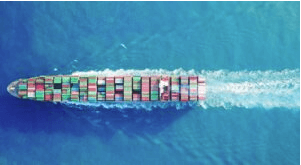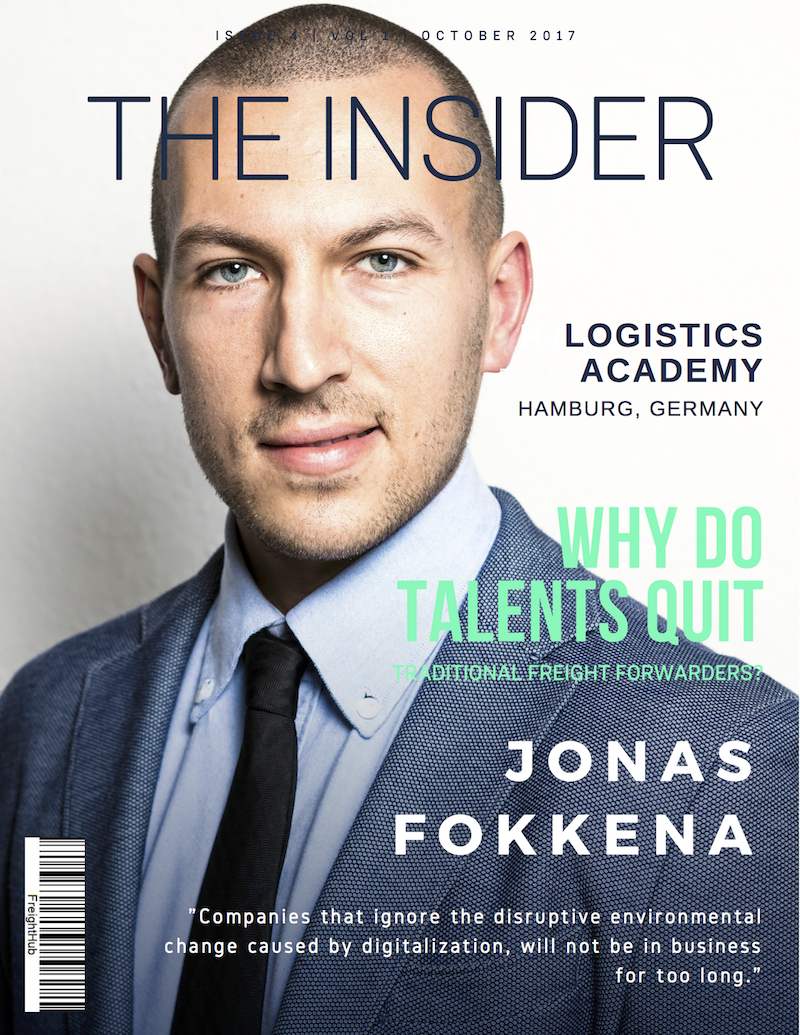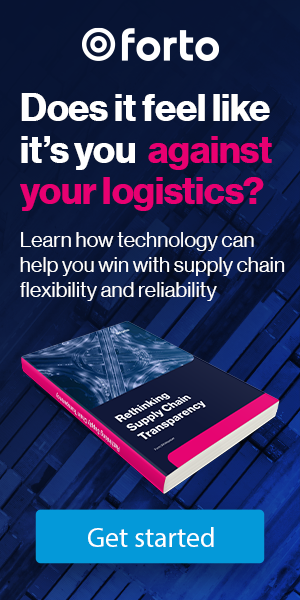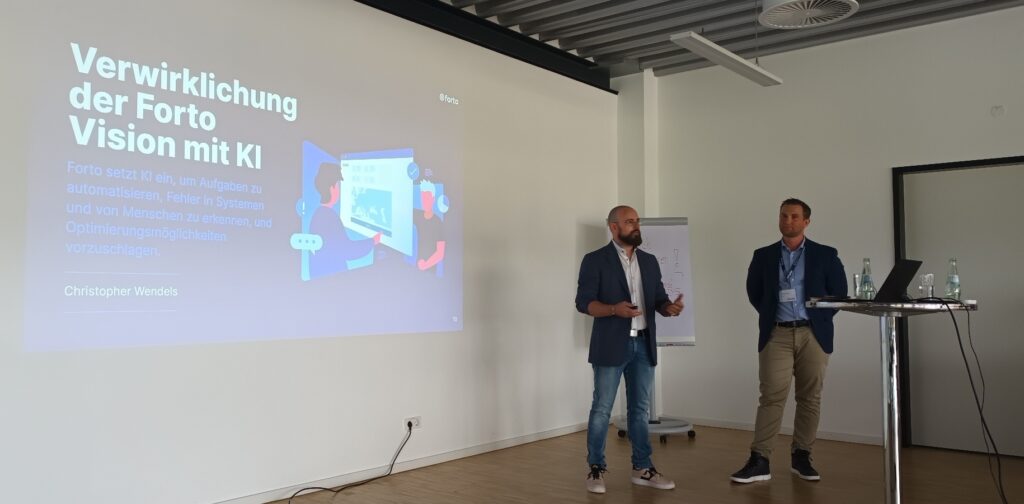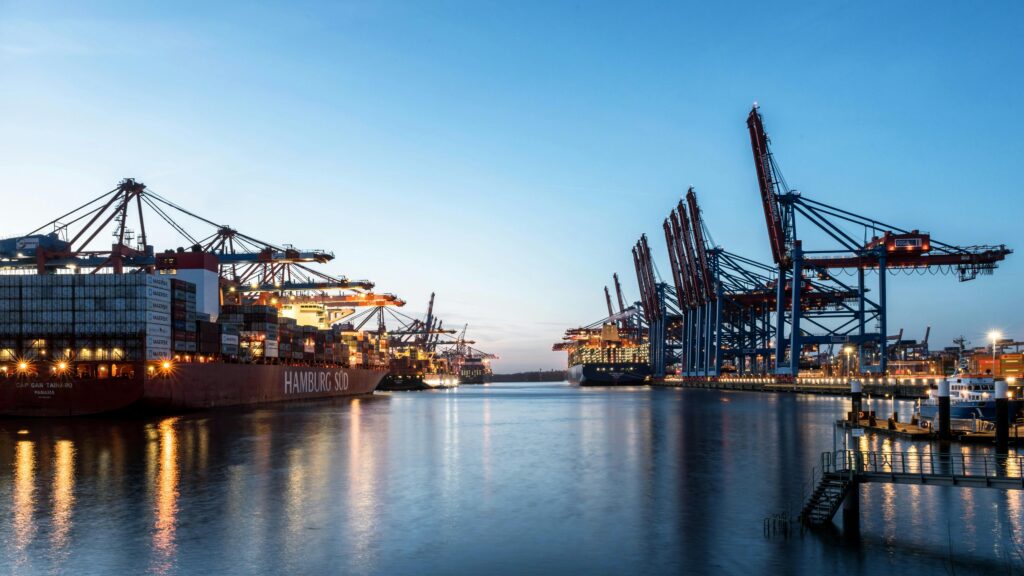The latest Insider chats with Jonas Fokkena, Senior Logistics Manager for FreightHub. Prior to joining FreightHub, Jonas worked for some logistics providers including a non-vessel operating common carrier (NVOCC) carrier, freight forwarders and a couple of steamship lines. Also, Jonas gained international experience from working abroad in Israel and the United States. All total, Jonas brings twelve years of valuable experience to the FreightHub team.
What attracted you to FreightHub?
I see digitalization as the future of logistics. However, many well-established logistics companies are way behind in terms of digitalization. Booking a cargo should be as easy as booking a flight or placing an order on Amazon, but it is not. But, where one might promote an easy to understand, transparent, 3-click process, the truth is that behind the scenes, there are really manual, work extensive and non-transparent processes. FreightHub’s goal is to change this situation.
FreightHub has provided me with the possibility to stay in logistics which I like, but without the process-related drawbacks. Additionally being part of the build-up of a digital logistics company also presented an interesting challenge. Moreover, I wanted to experience the tech culture myself, and I thought taking an active part in shaping and developing a company would be a great experience as well as an amazing opportunity for my personal development.
Describe what you do for FreightHub
I work as a Senior Logistics Manager and am part of the operations team. One of my main tasks is to support some of our key accounts as a logistics specialist, as well as develop several logistics projects with them. My second task is the development and realization of two types of projects. On the one hand, projects that are focused on improving internal processes and on the other hand projects with the scope of enlarging the product portfolio, supporting the company’s growth. Additionally, I am participating in a project for developing a process optimized organizational structure for FreightHub.
FreightHub recently opened a second office in Hamburg, why?
Obviously, because Hamburg is the most beautiful city in the world – just kidding. Hamburg is one of the most important logistics “hot spots” in Germany as well as in Europe and even worldwide. Many of the big players are located here. Therefore the office allows FreightHub to extend its national and international network. Another reason for choosing Hamburg is its job market with an extensive well-educated workforce specialized in the ocean freight business.
What services does FreightHub’s Hamburg office perform versus its main office?
The Hamburg office has the key focus on operations and logistics expertise, as well as establishing contacts with partners. As many of the big players are located in Hamburg, the office is tasked with the build-up and development of long-lasting partnerships.
What are your predictions for the future of traditional freight forwarding?
Well, I am afraid I only have one prediction which is that the success of traditional FFs will depend on their willingness and ability to implement a more reliable and proactive work style with more flexible processes. I think companies that ignore the rather disruptive environmental change caused by digitalization, in general, will not be in business for too long.
What are a few things every company can learn from a digital freight forwarder?
First of all, I am positive; digitalization will become a critical success factor for most companies in the near future. Therefore the first thing every company can learn from a digital freight forwarder is how to go with the trend and how to embrace digitalization. Additionally, digital freight forwarding represents a high degree of flexibility, adaptability, and pro-activeness. These three qualities, on the one hand, allow companies to navigate successfully in the global, ever-changing business world, enabling them to react to changes in their business environment immediately. On the other hand, they offer the possibility of the creation of individualized customer processes, resulting in an increase in customer satisfaction and retention which are critical to success in most businesses.
Why do good and talented employees quit traditional freight forwarders?
I assume employees quit traditional FF because of the benefits you could have in a digital logistics company like FreightHub, as a modern, innovative company with a modicum of hierarchy.
Changes, if they take place, happen very slowly, causing a feeling of “no matter what I do, nothing changes” which can be frustrating. I think working in a more dynamic environment gives employees the possibility to drive improvements and be an active part of a company’s development. Which in my opinion is very motivating. Also, employees might be missing the customer focus as traditional freight forwarders tend to be somewhat self-interested. In contrast, modern and agile companies are very focused on the customer satisfaction and experience.
A big thanks to Jonas for taking time out from his busy schedule to chat with us. Next time you’re in Hamburg, stop by FreightHub’s newest office to say hello to him and the rest of the team!

